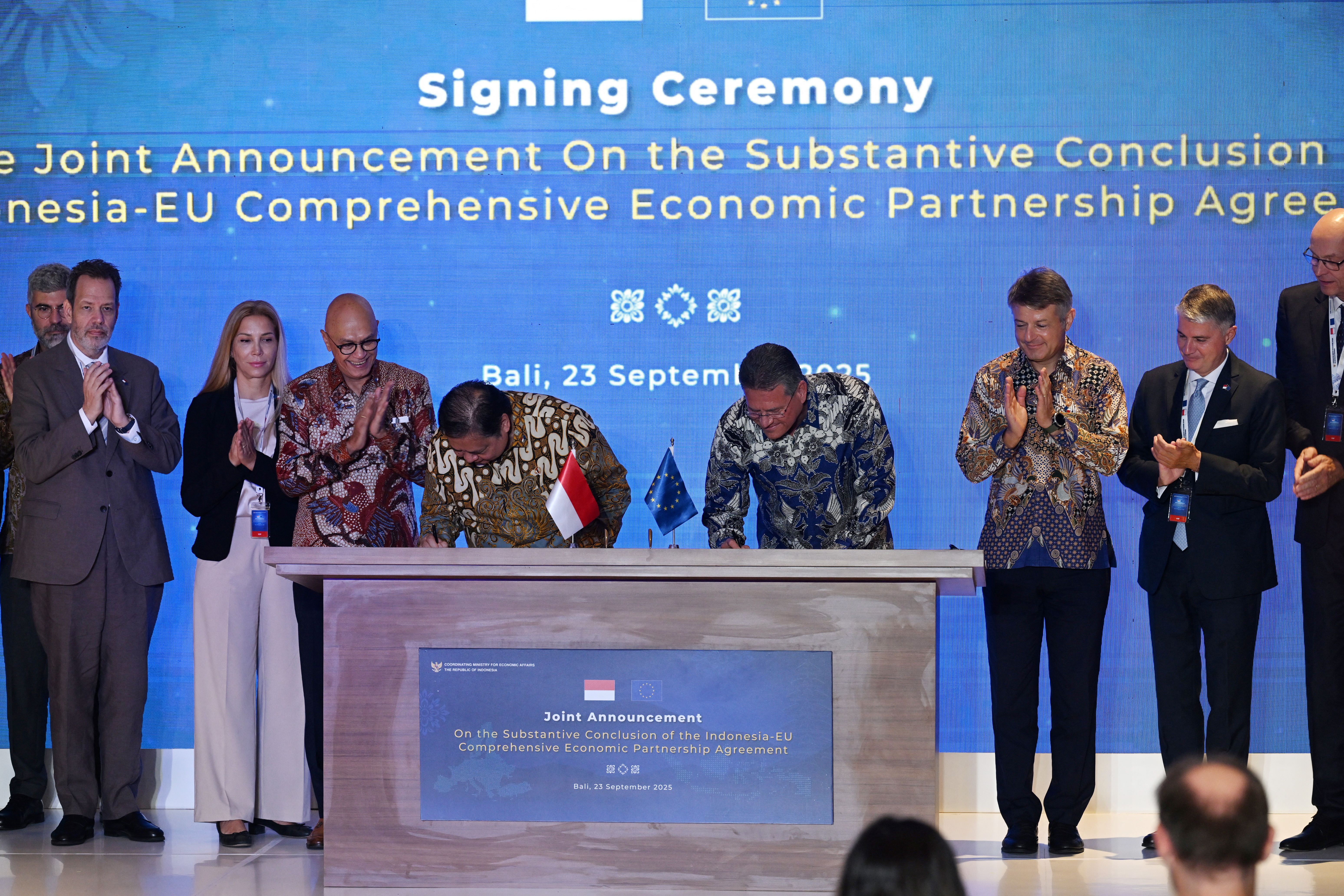
The European Union and Indonesia have secured a trade deal that will eliminate tariffs on most goods, boosting relations between the partners amid US President Donald Trump’s moves to upend global commerce.
Officials from the two economies signed the deal, known as a comprehensive economic partnership agreement, on Tuesday in Bali, concluding nearly a decade of talks.
The agreement will also remove restrictions for transactions in key raw materials, the bloc’s trade chief Maros Sefcovic told Bloomberg News in an interview ahead of the signing. Around €600 million ($708 million) of tariffs will be saved by European exporters as a result of the deal, he added.
“We are really opening a new chapter of huge, huge proportions,” said Sefcovic. “Our trade with Indonesia was really below the potential” given that Southeast Asia’s largest economy is bigger than Vietnam, the Philippines, and Thailand combined.
Indonesia aims to fully implement the trade deal in January 2027, Coordinating Economic Minister Airlangga Hartarto said at the signing. The agreement requires the approval of EU member states and the European Parliament as well as Indonesia’s legislature before it comes into force.
Indonesia expects exports to the EU to more than double in the first five years of implementation, including through rising shipments of key commodities such as palm oil and coffee and other products including furniture and textiles, Hartarto added. Indonesian officials said in a statement that 80 percent of Indonesian exports to the EU will enjoy zero percent tariffs.
Total trade between the two economies was more than $30 billion last year, according to Indonesia’s trade ministry.
The signing comes as the EU and Indonesia have been accelerating efforts to clinch trade deals with countries around the world as Trump has sought to reset global trade relations on American terms.
Both have raced to line up new partners: Brussels has intensified talks with India, concluded negotiations with Mercosur and stepped up outreach to Southeast Asian states including the Philippines and Thailand. Jakarta has sealed deals with the Eurasian Economic Union and Peru, is preparing to sign one with Canada, and this year joined the BRICS grouping.
ALSO READ: Indonesia unveils economic stimulus package worth almost $1b
The European Commission said in a separate statement that the deal will remove import duties on 98.5 percent of tariff lines and simplify procedures on EU goods exports to Indonesia.
Duties on EU cars will be reduced from 50 percent to zero in five years, while levies for machinery and appliances will go down from 30 percent to zero in a short period of time, officials said. Agriculture and food products will also benefit from trade liberalization.
In regard to materials such as chemicals exported from the EU, the deal will remove licensing and other restrictions. The EU, meanwhile, will get preferential treatment for duties on Indonesia’s materials exports after the first stage of processing. Still, the agreement will not alter Indonesia’s ban on exporting nickel to the EU — an ongoing dispute between the two partners at the World Trade Organization.
Indonesia is an important partner for the EU, with a fast-growing economy of more than 280 million people. But the bilateral relationship has been strained by the bloc’s deforestation regulation, which aims to combat the felling of trees abroad, especially to clear land for palm oil and coffee. Indonesia has been one of the most vocal critics of the rules.
The agreement will not affect the implementation of these rules by Indonesia, an issue that was discussed during the negotiations. But Sefcovic said that the deal will create a platform to help Indonesian companies, in particular smaller exporters, to meet EU obligations.
Sefcovic called the agreement a “very clear framework” that would promote trade and create opportunities for both sides.


